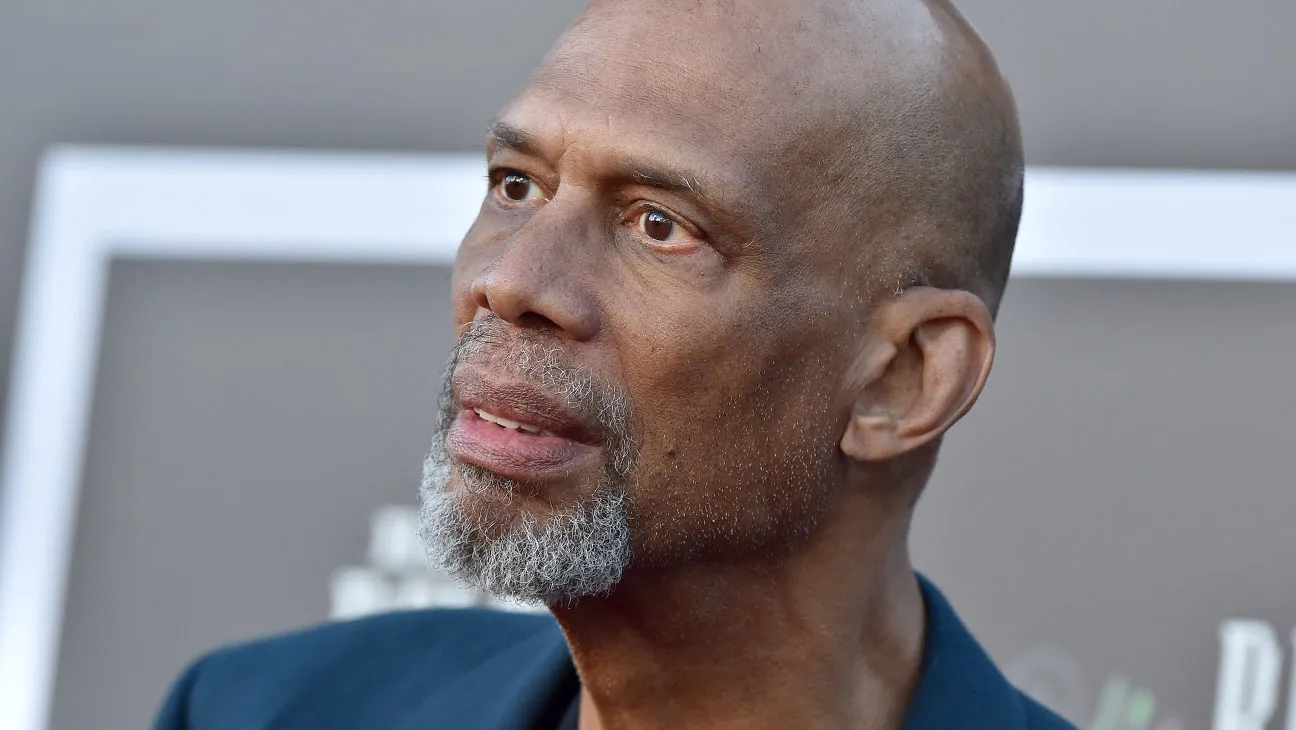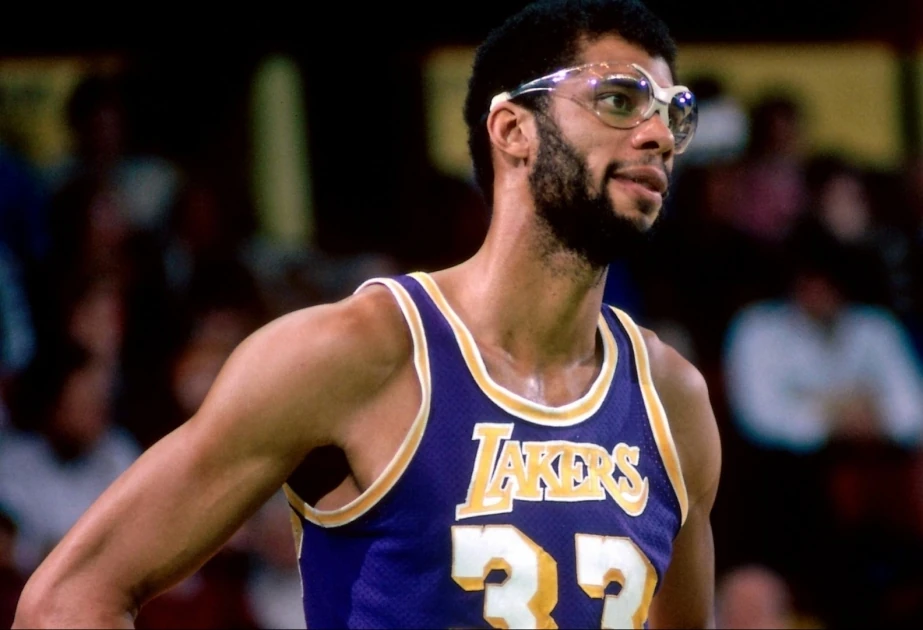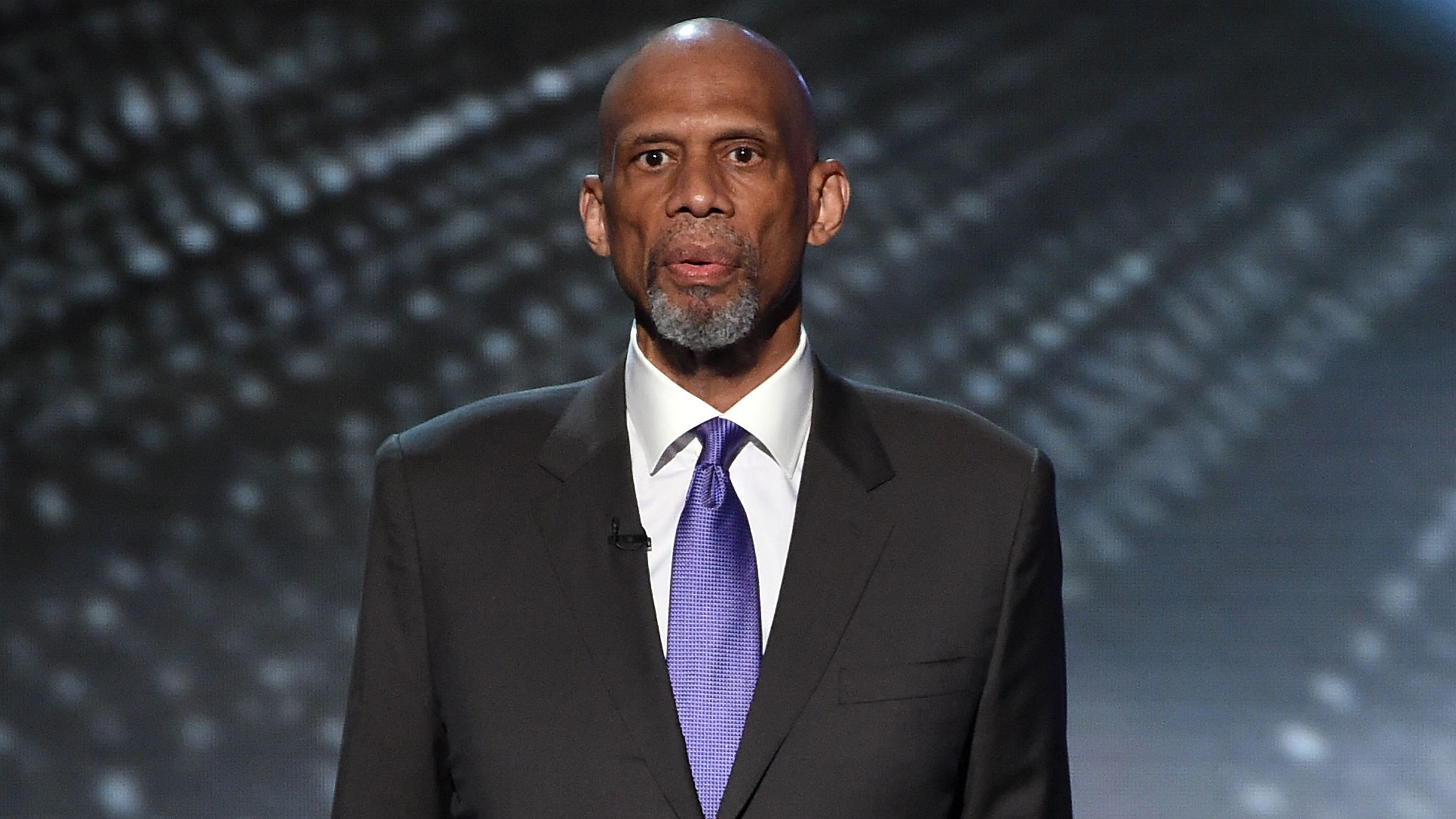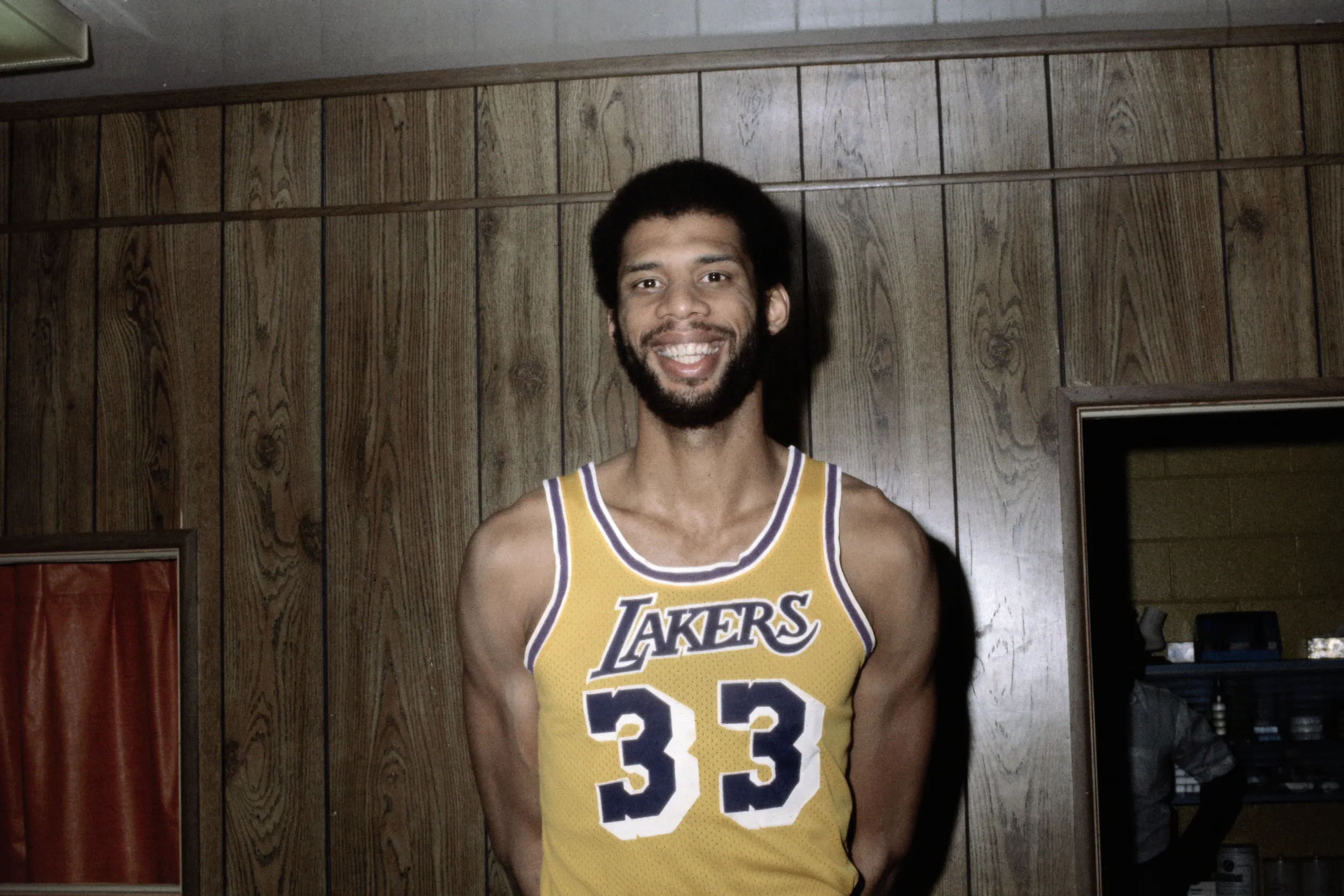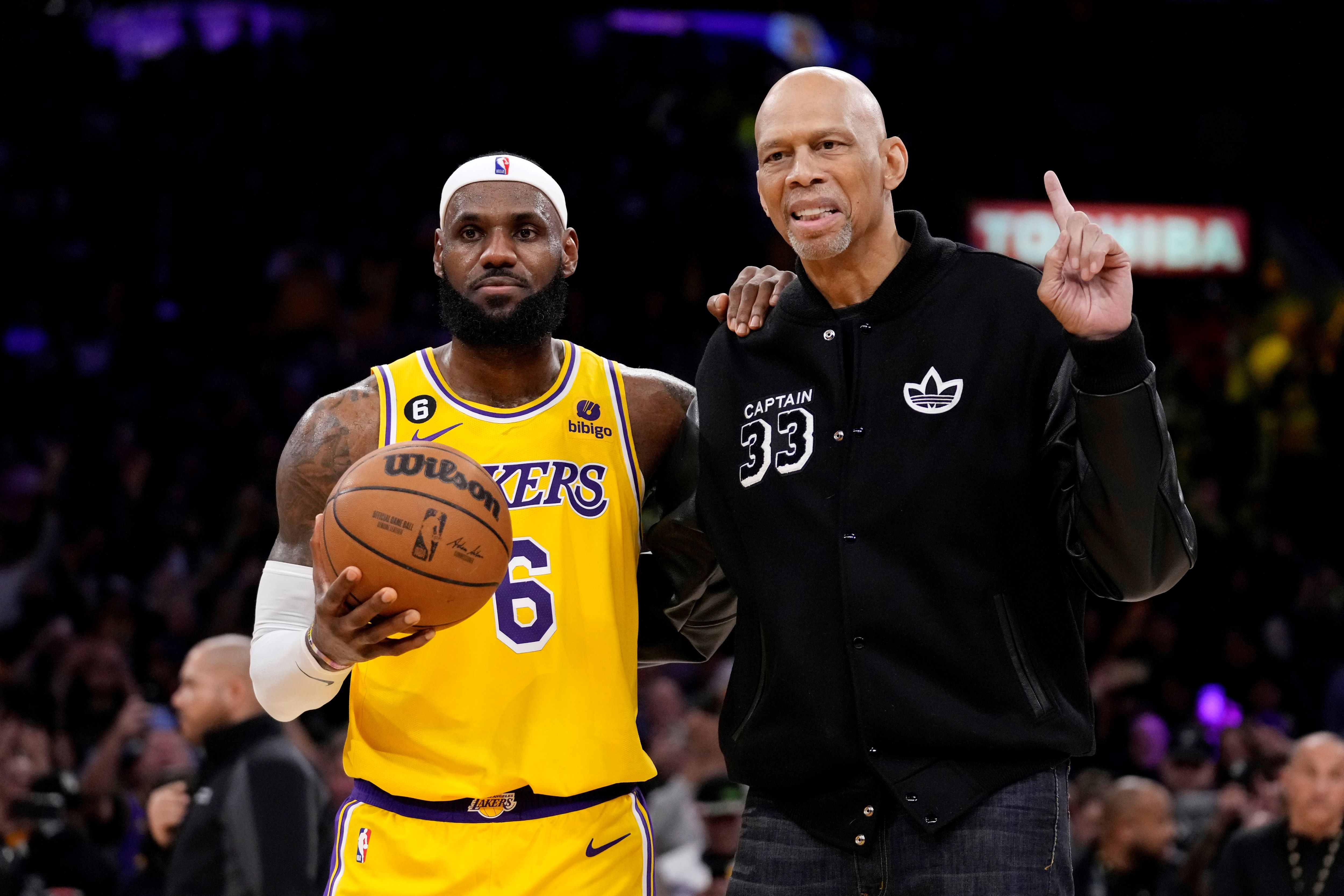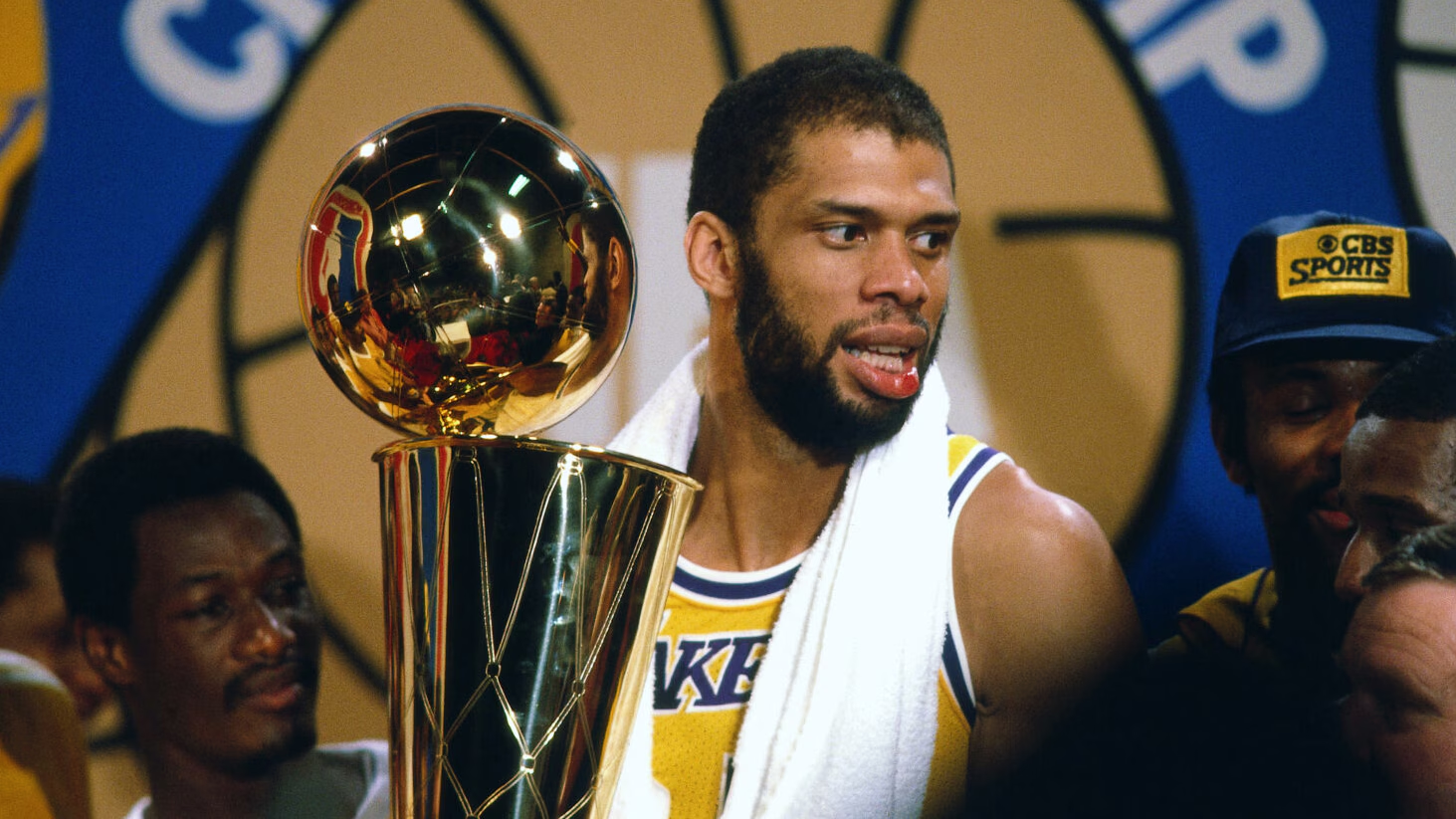Kareem Abdul-Jabbar - Biography, Statistics, & Facts
Basketball legend Kareem Abdul-Jabbar is celebrated not only for his sports achievements but also for his unwavering commitment to social progress.
Author:Suleman ShahReviewer:Han JuJan 03, 202535K Shares493.9K Views
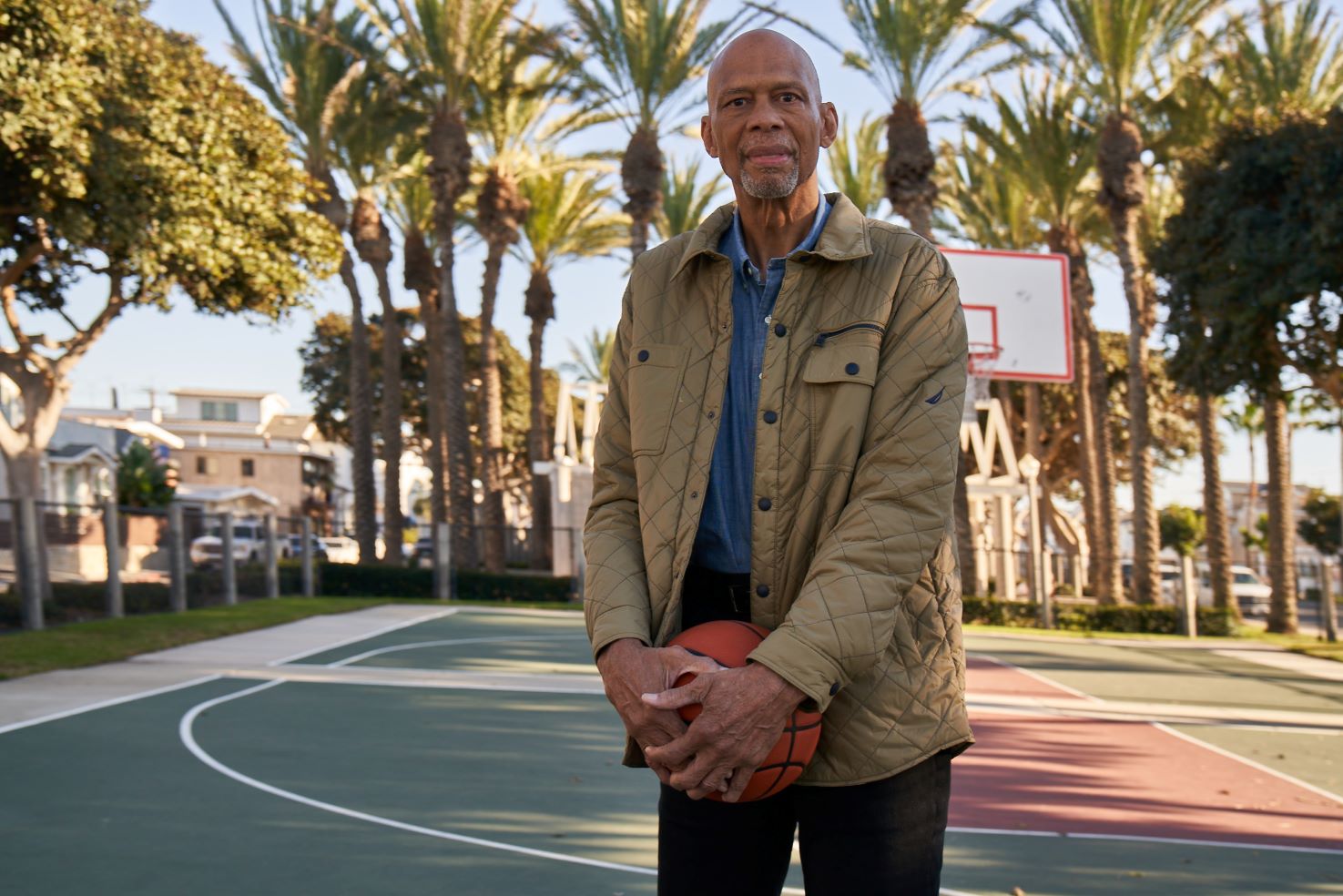
The name Kareem Abdul-Jabbar has resonance much beyond the basketball world. With a two-decade career, his iconic skyhook shot, and his status as the NBA's all-time top scorer, Kareem's impact has reshaped the sports industry and the definition of a cultural icon.
In addition to his supremacy on the court, Kareem is a fervent supporter of social justice, a New York Times best-selling author, and a winner of the Presidential Medal of Freedom.
Kareem's tale is one of tenacity, depth of thought, and an undying dedication to improving the world, from his ground-breaking on-court performances to his relentless fight for equality. His history as an activist and athlete is proof of the effectiveness of using one's position to effect constructive change.
Quick Facts
- Full Name:Kareem Abdul-Jabbar (born Ferdinand Lewis Alcindor Jr.)
- Date of Birth:April 16, 1947
- Occupation:Retired NBA player, author, actor, activist
- Nationality:American
- Net Worth:Estimated $20 million
- Spouse:Habiba Abdul-Jabbar (divorced)
- Weight:225 lbs (102 kg)
- Height:7'2" (218 cm)
- Children:5 (Habiba, Sultana, Kareem Jr., Amir, Adam)
- Known For:All-time NBA scoring record, Airplane!, activism
Top 6 Facts About Kareem Abdul-Jabbar
- Kareem’s scoring record of 38,387 points, achieved over 20 seasons, remains untouched.
- He popularized the skyhook, a near-unstoppable shot that became his trademark.
- After converting to Islam in 1971, he changed his name to Kareem Abdul-Jabbar, reflecting his faith and cultural identity.
- Kareem has authored over a dozen books, exploring African-American history, sports, and personal experiences.
- In 2016, he was awarded the Presidential Medal of Freedom for his sports, literature, and advocacy contributions.
- Beyond basketball, Kareem has acted in films and TV, such as Airplane!and The Fresh Prince of Bel-Air.
Early Life And Background
Born Ferdinand Lewis Alcindor Jr., Kareem Abdul-Jabbar was born in Harlem, New York, on April 16, 1947. His father, Ferdinand Sr., was a jazz musician and transit police officer; his mother, Cora, was a department store price checker. His parents instilled diligence and enthusiasm in him.
Abdul-Jabbar's height and athleticism were immediately apparent as he grew up in the Dyckman Street slums; by the time he was eight years old, he was 5'8" and could dunk a basketball. Despite his athletic prowess, Abdul-Jabbar had difficulties, such as low self-esteem brought on by the attention his height garnered.
These encounters, along with seeing racial injustice during the riots in Harlem, sparked an advocacy fervor that would influence his adult life. Excelling academically and athletically, he led Power Memorial Academyto a 71-game winning streak, solidifying his status as a basketball prodigy.
Personal Life
Abdul-Jabbar's cultural identityand faith have influenced his path. In 1971, he became an Islamic convert and changed his name to Kareem Abdul-Jabbar. His convictions have influenced his public life and activity, encouraging others to value their ancestry.
In 1971, Kareem married Habiba Abdul-Jabbar, whose real name was Janice Brown. The couple has three children: Habiba, Sultana, and Kareem Jr. They met while he was a college student. Kareem has kept good contact with his family despite their 1978 divorce.
Kareem has two kids, Amir and Adam, from previous relationships and his children with Habiba. Despite his intimidating public image, Kareem cherishes his privacy and dedicates much of his time to reading, writing, and intellectual pursuits.
College Career
Under renowned coach John Wooden, Abdul-Jabbar thrived at UCLA, helping the Bruins win three straight NCAA titles. His team's historic victory over the varsity team in his rookie year was an uncommon occurrence in UCLA history.
Abdul-Jabbar received several distinctions throughout his three varsity seasons, including three national Player of the Year trophies, three NCAA Most Outstanding Player awards, and an unheard-of level of domination on the floor.
Although the NCAA's contentious "Alcindor Rule" prohibiting dunks was intended to curtail his impact, it helped him hone his trademark skyhook shot. The UCLA Bruins finished with an 88–2 record when he was a student there. In addition to playing basketball, Abdul-Jabbar started examining his spiritual and cultural identity, ultimately leading to his conversion to Islam.
Professional Career
Kareem Abdul-Jabbar began his professional career in 1969 when the Milwaukee Bucks selected him in the draft. His influence was felt right away, as he won the Rookie of the Year award and helped lead the Bucks to an NBA championship in 1971.
In that same year, he changed his name to Kareem Abdul-Jabbar to honor his Islamic faith and heritage. The trade to the Los Angeles Lakers in 1975 signified the start of the Showtime era, where he created a legendary partnership with Magic Johnson.
With a total of six championships, six MVP awards, and countless records, Abdul-Jabbar transformed the center position. By the time he concluded his career in 1989, he had achieved the NBA’s all-time scoring record of 38,387 points, which remained unbroken for 39 years. His remarkable performance over two decades solidified his reputation as one of basketball’s all-time greats.
Coaching Career
In the mid-1990s, Abdul-Jabbar began his coaching journey, eager to impart his extensive knowledge of the sport. He served as an assistant coach for the Los Angeles Clippers and Seattle SuperSonics, guiding young talents such as Michael Olowokandi and Jerome James. In 2002, he took the helm of the Oklahoma Storm, leading them to a championship in the United States Basketball League.
Despite his successes as a coach, Abdul-Jabbar encountered difficulties in obtaining head coaching positions, often linked to his reserved demeanor during his playing days. He subsequently worked as a special assistant coach for the Lakers, helping to develop Andrew Bynum. His dedication reflected his desire to foster talent and make a lasting impact on the game beyond his time as a player.
Player Profile
Abdul-Jabbar, renowned for his elegance and skill, is famous for his ambidextrous skyhook shot, which is considered one of the most effective movements in the history of basketball. His consistent scoring ability and impressive .559 career field goal percentage positioned him as a powerful offensive player. On the defensive end, he was equally impressive, earning 11 selections to the All-Defensive Team and averaging 2.6 blocks per game.
A disciplined fitness routine enabled Abdul-Jabbar to compete for 20 seasons, a notable feat in the demanding environment of the NBA. He attributed his longevity to practices such as yoga and martial arts, along with his focused approach to conditioning. His leadership, both on and off the court, earned him the endearing nickname "Cap" from his teammates, highlighting his calm and strategic presence.
NBA Career Statistics
- Points Scored:38,387 (Most in NBA history)
- Rebounds:17,440
- Assists:5,660
- Blocks:3,189
- Field Goal Percentage:55.9%
- Games Played:1,560
Athletic Honors
- NBA Championships:6 (1971, 1980, 1982, 1985, 1987, 1988)
- MVP Awards:6 (Most in NBA history)
- All-Star Appearances:19
- Hall of Fame Induction:1995
Legacy
Kareem Abdul-Jabbar’s legacy extends far beyond the basketball court. With six MVP awards, 19 All-Star selections, and six championships, his accolades remain unmatched. His skyhook shot, combined with his longevity and adaptability, solidified his reputation as one of the NBA’s greatest players.
Off the court, Abdul-Jabbar’s contributions to activism, writing, and education have further elevated his impact. He has been a vocal advocate for racial equality, religious tolerance, and educational reform, inspiring future generations to pursue excellence and justice. His honors, including the Presidential Medal of Freedom, reflect the breadth of his influence.
Film And Television
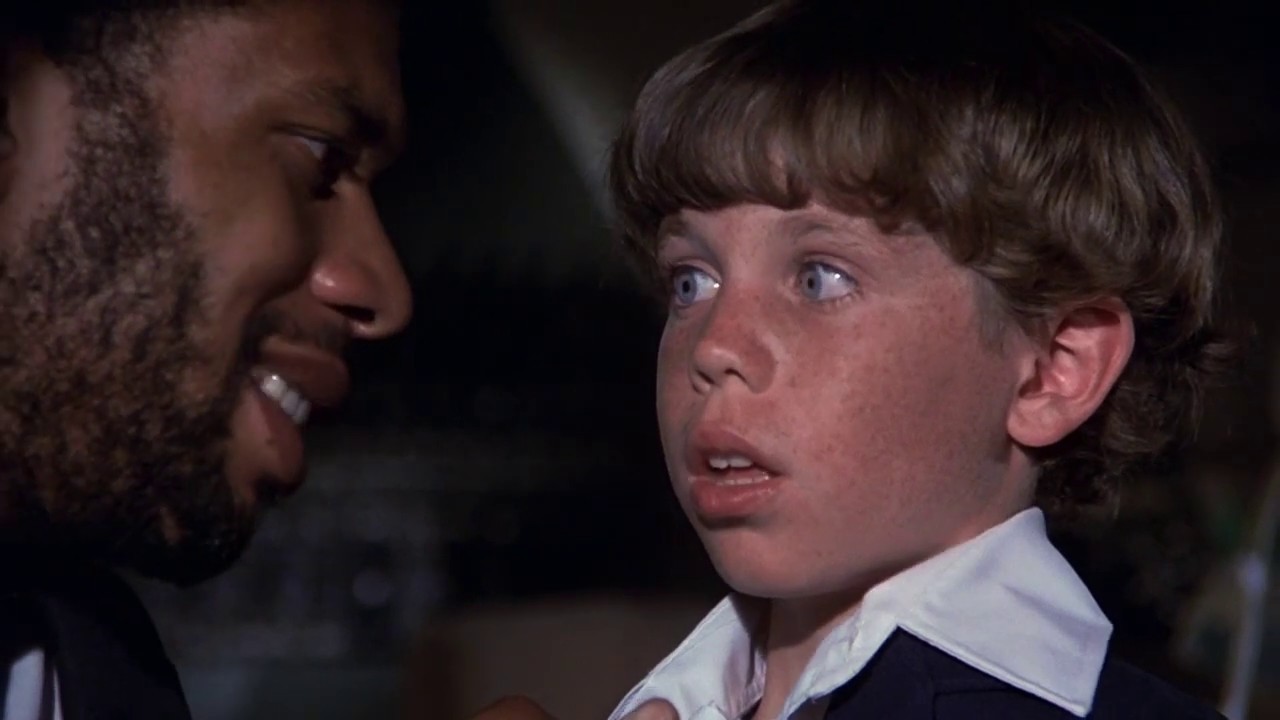
Airplane! (1980) Kareem Abdul-Jabbar
Kareem Abdul-Jabbar’s charismatic presence extended to film and television, where he embraced roles that showcased his versatility. His most famous acting role came in the 1980 comedy Airplane!, where he played a fictional co-pilot who humorously breaks character to acknowledge his real-life basketball persona. In Bruce Lee’s 1978 martial arts film Game of Death, Kareem demonstrated his athleticism and martial arts skills, further solidifying his status as a multifaceted talent.

Kareem Abdul Jabbar on Fresh Prince
Over the years, Kareem made numerous guest appearances on television shows, often playing himself. Notable appearances include Scrubs, where he humorously interacts with the hospital staff, and The Fresh Prince of Bel-Air, where he delivers a heartfelt message to aspiring youth. His television work spans genres, from comedies to dramas, and reflects his ability to connect with audiences beyond the basketball court.
In addition to acting, Kareem has contributed to documentaries and served as a producer for projects that align with his interests in history and social justice. His involvement in both popular culture and educational media highlights his enduring influence as a storyteller and advocate.
Writing And Activism
As an accomplished author, Abdul-Jabbar has written extensively on African-American history, culture, and his journey. Books like On the Shoulders of Giantsand Mycroft Holmesreflect his intellectual depth and curiosity. He has also contributed essays to major publications, addressing issues such as racial justice, education, and religion.
Abdul-Jabbar’s activism dates back to the 1960s, including his participation in the Cleveland Summit and boycott of the 1968 Olympics. His thoughtful advocacy has made him a prominent voice for change, both within and beyond the sports world.
Government Appointments
In 2012, Abdul-Jabbar was appointed a U.S. cultural ambassador, promoting education and cultural understanding worldwide. He also served on the President’s Council on Fitness, Sports, and Nutrition, where he emphasized health and wellness initiatives. His roles reflect his dedication to public service and education.
Autobiographies And Personal Reflections
- Giant Steps(1983) – Co-written with Peter Knobler, this autobiography provides insight into Abdul-Jabbar’s life, basketball career, and personal journey.
- Coach Wooden and Me: Our 50-Year Friendship On and Off the Court(2017) – A heartfelt memoir about his relationship with UCLA coach John Wooden.
Historical And Cultural Works
- Black Profiles in Courage: A Legacy of African-American Achievement(1996) – Co-written with Alan Steinberg, it highlights the contributions of African-American figures to U.S. history.
- Brothers in Arms: The Epic Story of the 761st Tank Battalion, WWII’s Forgotten Heroes(2004) – Co-written with Anthony Walton, this book explores the first African-American tank battalion to fight in World War II.
- On the Shoulders of Giants: My Journey Through the Harlem Renaissance(2007) – Co-written with Raymond Obstfeld, it celebrates the Harlem Renaissance and its cultural significance.
Fiction
- Mycroft Holmes(2015) – Co-written with Anna Waterhouse, a Victorian mystery novel about Sherlock Holmes’s older brother, Mycroft.
- Mycroft and Sherlock(2018) – The sequel to Mycroft Holmes, co-written with Anna Waterhouse.
- Mycroft and Sherlock: The Empty Birdcage(2019) – The third novel in the series, co-written with Anna Waterhouse.
Books For Younger Readers
What Color Is My World? The Lost History of African-American Inventors(2012) – Co-written with Raymond Obstfeld, it introduces young readers to lesser-known African-American inventors and their contributions.
Challenges And Triumphs
Kareem Abdul-Jabbar faced significant challenges during his career, including enduring racism both on and off the court. Early in his career, he was criticized for being outspoken about social and political issues, particularly his vocal support for the civil rights movement. His decision to boycott the 1968 Olympics to protest racial inequality drew widespread criticism, as did his conversion to Islam in 1971, which included changing his name from Ferdinand Lewis Alcindor Jr. to Kareem Abdul-Jabbar. Many viewed his actions as polarizing, but Kareem stayed true to his principles, using his platform to amplify discussions on race, identity, and justice.
The backlash from fans and media didn’t deter Kareem. Instead, it fueled his resolve to advocate for change. His activism during a time of deep racial divides in America showcased his courage, particularly in an era when athletes were often discouraged from addressing social issues. From transitioning into writing and cultural advocacy post-retirement to addressing health challenges like leukemia and prostate cancer, Kareem’s journey is one of resilience, adaptation, and triumph. These experiences underscore his ability to turn adversity into a catalyst for positive impact, both personally and globally.
Kareem’s triumphs extend beyond his accolades in basketball. His efforts in promoting education, mentoring young athletes, and advocating for social change demonstrate his commitment to leaving a legacy that transcends the sport. Despite criticism, he has remained steadfast in his values, inspiring generations to stand up for what they believe in.
Awards And Achievements
Kareem Abdul-Jabbar’s extraordinary career and post-retirement contributions have earned him countless accolades. In 2016, he was awarded the Presidential Medal of Freedom by President Barack Obama, the highest civilian honor in the United States. This recognition celebrated not only his basketball achievements but also his contributions to cultural and social issues.
In 2019, Kareem received the NBA Lifetime Achievement Award, honoring his unparalleled legacy in the league. His six MVP awards, six NBA championships, and record-breaking career scoring mark are just a few examples of his lasting impact on the sport. Beyond basketball, he has been inducted into various halls of fame, including the Naismith Memorial Basketball Hall of Fame in 1995 and the National Collegiate Basketball Hall of Fame in 2007.
Kareem’s awards reflect his excellence both as an athlete and as a humanitarian. His ability to influence multiple spheres - sports, activism, writing, and education - cements his status as one of the most impactful figures in modern history.
Net Worth
Kareem Abdul-Jabbar’s financial success stems from diverse sources. During his 20-year NBA career, he earned an estimated $8.5 million, a significant amount for the era. However, his wealth has grown considerably through smart investments in real estate and publishing ventures. He has also capitalized on royalties from his books and earnings from speaking engagements.
Kareem’s approach to wealth management reflects his thoughtful and pragmatic mindset. Rather than pursuing extravagant spending, he has focused on projects that align with his values, including educational initiatives and charitable work. This balanced financial strategy has ensured a lasting legacy for his family and the causes he supports.
Lifestyle
Despite his fame, Kareem Abdul-Jabbar lives a modest life centered on intellectual and creative pursuits. His love for literature and jazz, coupled with his passion for writing, occupies much of his time. Unlike many of his contemporaries, Kareem has avoided the excesses often associated with celebrity culture, choosing instead to invest in meaningful endeavors.
His lifestyle also reflects a commitment to health and longevity. Kareem’s disciplined approach to fitness, which included yoga and martial arts, allowed him to enjoy one of the longest careers in NBA history. His mindful approach to wealth and well-being exemplifies the balance he has maintained throughout his life.
Philanthropy And Advocacy
Kareem Abdul-Jabbar is highly dedicated to giving back to the community. His Skyhook Foundation aims to enhance educational opportunities for underprivileged communities, with a particular focus on STEM initiatives for young learners. By creating avenues for children's success, Kareem is tackling systemic inequities and empowering future leaders.
Beyond his foundation, Kareem champions various causes related to health, racial equity, and social justice. He has been a vocal proponent of criminal justice reform and collaborates with organizations that strive to fight systemic discrimination. His advocacy also encompasses public health, where he raises awareness about illnesses such as cancer and atrial fibrillation, both of which he has faced personally.
Social Media Presence
Kareem Abdul-Jabbar utilizes social media to interact with fans and express his views on vital issues. On Twitter (@kaj33) and Instagram (@kareemabduljabbar_33), he frequently shares posts about basketball, social justice, and personal reflections.
His posts strike a balance of humor, intellect, and motivation, offering followers a richer understanding of his beliefs and values. By harnessing his online presence, Kareem continues to shape discussions around equity and progress, ensuring that his voice resonates with audiences across generations.
FAQs About Kareem Abdul-Jabbar
What Is Kareem Abdul-Jabbar’s Scoring Record?
Kareem scored 38,387 points during his NBA career, the highest in history until LeBron James surpassed the record in 2023.
What Is Kareem Abdul-Jabbar’s Signature Basketball Move?
His skyhook shot, known for its precision and near-impossibility to block, is considered one of the most effective moves in NBA history.
What Books Has Kareem Abdul-Jabbar Written?
He has authored several books, including Giant Steps, On the Shoulders of Giants, and the Mycroft Holmesseries, showcasing his literary talent and intellectual curiosity.
How Has Kareem Abdul-Jabbar Contributed To Film And Television?
Kareem has appeared in films like Airplane!and Game of Deathand made guest appearances on popular shows such as Scrubsand The Fresh Prince of Bel-Air. He also produces documentaries on historical and social topics.
Final Thoughts
Kareem Abdul-Jabbar’s story exemplifies greatness on and off the court. As an athlete, he set records that defined the NBA’s history. As a writer, advocate, and cultural ambassador, he has inspired meaningful conversations about equity, education, and identity. His resilience, intellect, and dedication ensure his legacy will continue to shape generations to come.
Jump to
Quick Facts
Top 6 Facts About Kareem Abdul-Jabbar
Early Life And Background
Personal Life
College Career
Professional Career
Coaching Career
Player Profile
NBA Career Statistics
Athletic Honors
Legacy
Film And Television
Writing And Activism
Government Appointments
Autobiographies And Personal Reflections
Challenges And Triumphs
Awards And Achievements
Net Worth
Lifestyle
Philanthropy And Advocacy
Social Media Presence
FAQs About Kareem Abdul-Jabbar
Final Thoughts

Suleman Shah
Author
Suleman Shah is a researcher and freelance writer. As a researcher, he has worked with MNS University of Agriculture, Multan (Pakistan) and Texas A & M University (USA). He regularly writes science articles and blogs for science news website immersse.com and open access publishers OA Publishing London and Scientific Times. He loves to keep himself updated on scientific developments and convert these developments into everyday language to update the readers about the developments in the scientific era. His primary research focus is Plant sciences, and he contributed to this field by publishing his research in scientific journals and presenting his work at many Conferences.
Shah graduated from the University of Agriculture Faisalabad (Pakistan) and started his professional carrier with Jaffer Agro Services and later with the Agriculture Department of the Government of Pakistan. His research interest compelled and attracted him to proceed with his carrier in Plant sciences research. So, he started his Ph.D. in Soil Science at MNS University of Agriculture Multan (Pakistan). Later, he started working as a visiting scholar with Texas A&M University (USA).
Shah’s experience with big Open Excess publishers like Springers, Frontiers, MDPI, etc., testified to his belief in Open Access as a barrier-removing mechanism between researchers and the readers of their research. Shah believes that Open Access is revolutionizing the publication process and benefitting research in all fields.

Han Ju
Reviewer
Hello! I'm Han Ju, the heart behind World Wide Journals. My life is a unique tapestry woven from the threads of news, spirituality, and science, enriched by melodies from my guitar. Raised amidst tales of the ancient and the arcane, I developed a keen eye for the stories that truly matter. Through my work, I seek to bridge the seen with the unseen, marrying the rigor of science with the depth of spirituality.
Each article at World Wide Journals is a piece of this ongoing quest, blending analysis with personal reflection. Whether exploring quantum frontiers or strumming chords under the stars, my aim is to inspire and provoke thought, inviting you into a world where every discovery is a note in the grand symphony of existence.
Welcome aboard this journey of insight and exploration, where curiosity leads and music guides.
Latest Articles
Popular Articles
